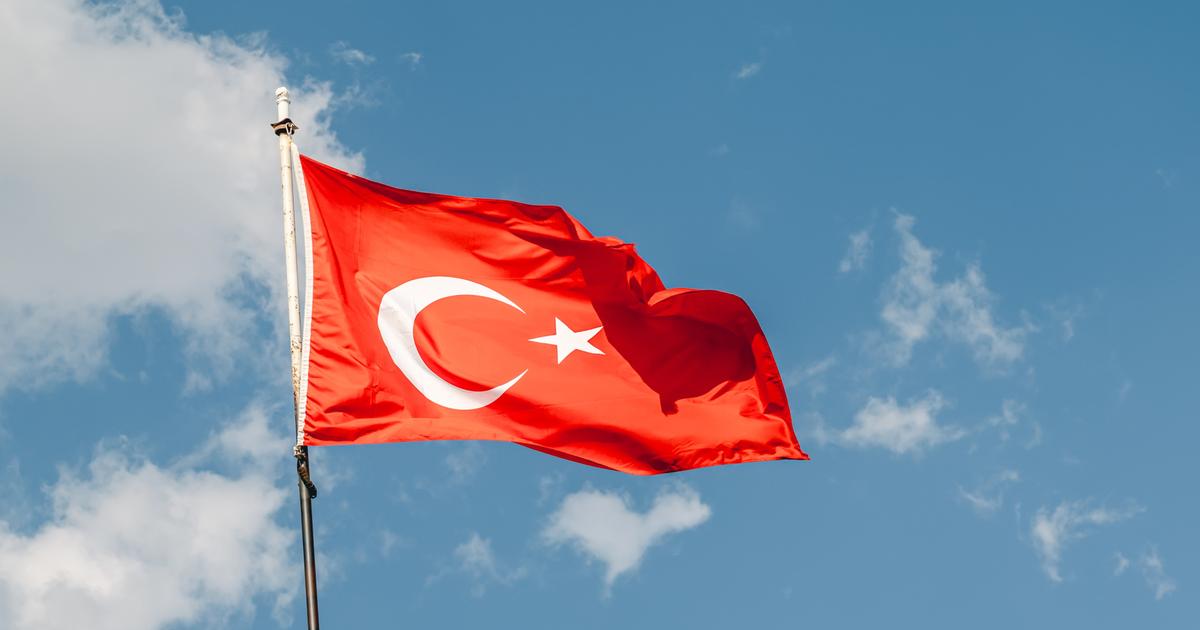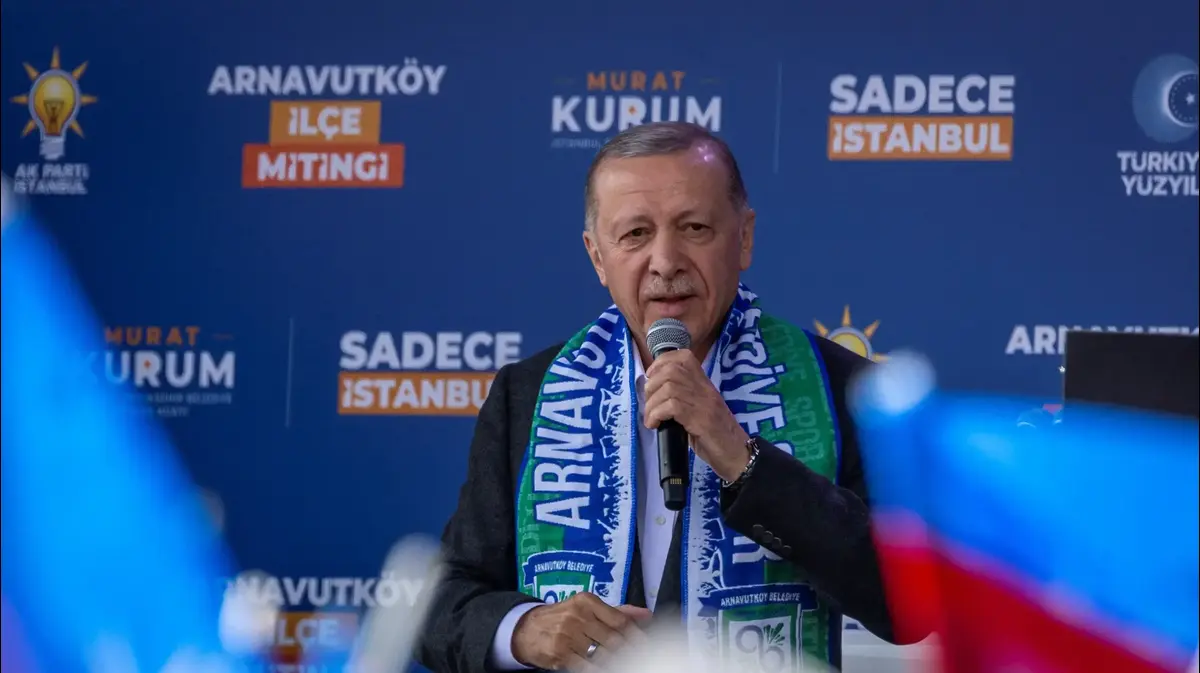Turkey's attorney general presented a request to the Constitutional Court on Wednesday to outlaw the Peoples' Democratic Party (HDP), the country's main pro-Kurdish formation and the third in seats in the Turkish Parliament, and asked to ban political activity for life to more than 687 leaders and representatives of the party.
This opens a process that could end with the cancellation of the HDP (which obtained 6 million votes in 2018), something that the extreme right, which is part of the government coalition of President Recep Tayyip Erdogan, has been demanding for weeks.
In recent years, thousands of members of the pro-Kurdish party have been jailed, including their former leaders, and dozens of mayoralties won in the 2019 municipal elections have been intervened by the Interior Ministry.
The Turkish Constitution is known as the "grave of the parties" as it has outlawed 25 political formations since 1963, most of them left-wing, Islamist or Kurdish nationalists (including one environmentalist).
During the 1990s and 2000s, various formations of Kurdish nationalism were outlawed, the last the Democratic Society Party (DTP) in 2009. A year earlier, until the formation of Erdogan, the Justice and Development Party (AKP ), was on the verge of being outlawed - it was fought by a single vote - despite being the ruling party.
Now, the Prosecutor's Office focuses its accusation on the fact that the members of the HDP, through “their actions and declarations” have the objective of breaking “the indissoluble unity of the State and the nation”, which would violate the Constitution and the Law of Parties.
One justification clashes with the fact that the formation has never called for the independence of the Kurdish-majority provinces of Turkey and its proposals for decentralization have always been ambiguous: granting more powers to municipalities and vague references to a certain federalism.
In contrast, the usual accusation made against the HDP and for which hundreds of its members have been convicted - maintaining ties with the armed group PKK or propagandizing this organization considered terrorist in Turkey and the EU - occupies less space in the justification of the accusation.
They do mention the so-called “Kobane incidents”, a series of violent protests against the Turkish government's decision not to help the Kurdish-Syrian city of Kobane when it was under siege by the Islamic State.
The Prosecutor's Office accuses the HDP leaders of having instigated the Kurdish population to rebel during those protests.
This case is also being reviewed in another judicial process - despite the fact that another court had dismissed it years ago - by which Parliament has been asked to withdraw the immunity of nine of the 55 deputies that the HDP parliamentary group has.
Devlet Bahçeli, leader of the far-right Nationalist Action Party (MHP) and Erdogan's government partner, began to demand the outlawing of the HDP after the death of 13 hostages - allegedly killed by the PKK - during a Turkish military operation in Iraq against the bases. of the armed group last month.
In principle, Erdogan's AKP was reluctant to call for the outlawing of the HDP and preferred to act individually against party members.
Among other things, because the AKP is the second most voted party by the Kurds and the increase in repression against Kurdish nationalism may alienate its voters in southeast Turkey.
But the influence of the extreme right in the Erdogan government is becoming increasingly evident as the economic crisis reduces support in polls for the AKP and the support of the MHP becomes indispensable.
It seems clear that the MHP intends to spur nationalism with this move - a split in its party surpasses it in popularity in the polls - and, in fact, the far-right formation bought advertisements on the main television networks during the special programs in which they were debated the news of the request for the outlawing of the HDP.
The decision also comes a day before the MHP Congress begins.
Turkey detains 82 leaders and former MPs of the main Kurdish party
Turkey strengthens its control in northern Syria
The brief from the Prosecutor's Office maintains that his request complies with the jurisprudence of the European Court of Human Rights.
Turkish leaders have repeatedly cited as a reference the decision of the Strasbourg Court to ratify the outlawing of Batasuna in 2003 by the Spanish Justice.
An argument that leaves Spanish diplomacy in an uncomfortable position, which in recent months has worked with Germany and other EU countries to try to soften the imposition of sanctions on Turkey, but at the same time urges Ankara to comply with Brussels' demands on human rights.
"In my conversations with the Turkish authorities, I have always stressed that it is essential to keep the HDP in the institutions," explains Nacho Sánchez Amor, special rapporteur of the European Parliament for Turkey.
"Pushing the HDP out of Parliament is to agree with those who justify the violence and it is absolutely contradictory to the idea of democratizing Turkey and maintaining stability," he emphasizes.
Already six years ago, Abdullah Demirbas, a Kurdish mayor deposed by court order, warned that the new Kurdish generations were losing confidence in democracy due to the arrest of their representatives.
AKP'li Alpay Özalan'ın Gergerlioğlu'nu Meclis'ten çıkarmaya çalıştığı anlar👇 # GergerlioğluYalnızDeğildir pic.twitter.com/Gxxi4NDxnk
- Yol TV (@YolTV) March 17, 2021
Hours earlier, the Turkish parliament table on Wednesday withdrew the immunity and seat of HDP deputy Ömer Faruk Gergerlioglu, drawing criticism from the entire opposition.
Gergerlioglu, a doctor and human rights activist, obtained his seat in 2018 and had characterized himself for defending the rights of those reprisals after the attempted coup in 2016. Last February, the Court of Cassation confirmed a prison sentence of 15 years ago. three years against Gergerlioglu for having shared on Twitter an article about a call by the PKK to negotiate with Ankara (an article that has not been the subject of legal proceedings and that is still accessible in Turkey).
Gergerlioglu rejected Parliament's decision as the representative of the 90,000 voters who supported him.
Several deputies of the ruling AKP then went to the HDP bench to physically remove him from the room, while the opposition called the decision unconstitutional.
Several human rights organizations and representatives of the European Parliament also criticized the measure.

/cloudfront-eu-central-1.images.arcpublishing.com/prisa/OQCWLDZLIUT53OO4Z3PXEWODZM.jpg)






